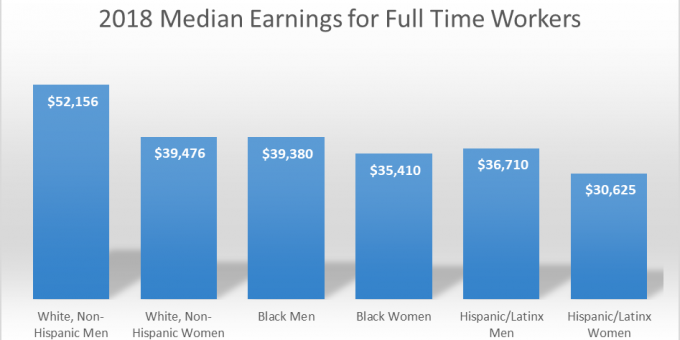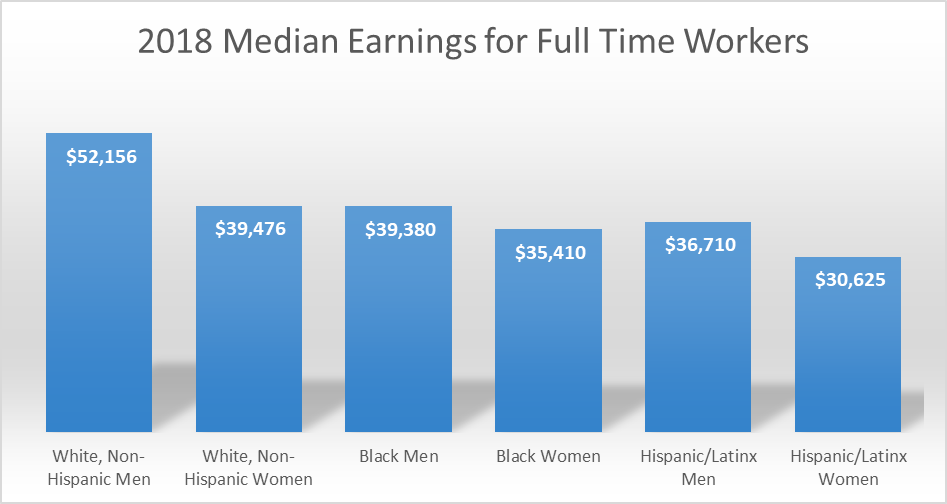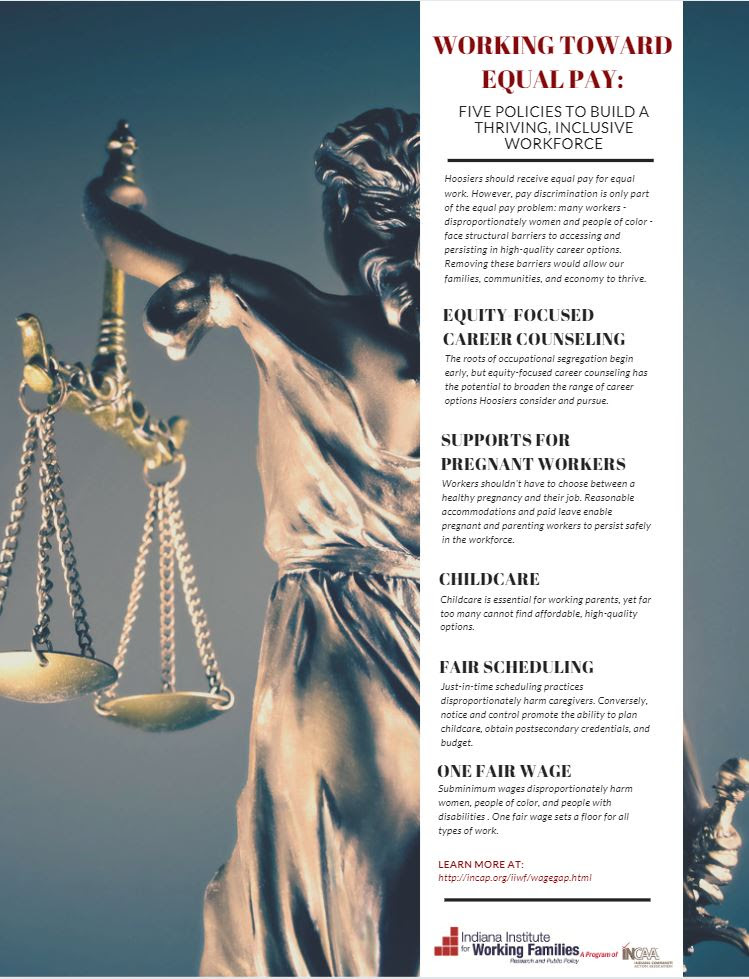
(INDIANAPOLIS) – New data released by the Census Bureau today suggests that Hoosier wages and household income remained relatively stagnant in 2018, with persistent gaps in earnings by gender and race. The overall gender wage gap narrowed slightly to 25% or a $12,743 gap, leaving Indiana with the 8th largest gender wage gap in the country. Larger disparities exist for Black and Latinx workers, especially women.

Source: American Community Survey, 2018
“The Census Bureau data released today clearly shows that there is still a great deal of work to be done in Indiana to ensure that all Hoosiers – regardless of their gender, race, or other protected status – can achieve financial stability and reach their full potential and support their families,” said Jessica Fraser, Director of the Indiana Institute for Working Families. “It’s critical for us to make policy changes to create a more inclusive workforce and make it possible for all workers to thrive.”
With support from the Women’s Fund of Central Indiana, the Institute will publish a series of five policy briefs to support that vision. These briefs focus on the following strategies:
- Equity-focused career counseling – Occupational segregation begins early, but preparing career counselors to acknowledge and counteract bias has the potential to broaden the range of career options Hoosiers consider and pursue. [Release date: October 3, 2019]
- Supports for pregnant workers – Reasonable accommodations and paid leave would allow more women to work safely, keep their jobs, and support their families. [Release date: October 10, 2019]
- Childcare – Quality, affordable childcare is critical support for working families but is out of reach for far too many Hoosiers. [Release date: October 17, 2019]
- Fair scheduling – Scheduling practices that give workers more notice and control promote the ability to plan childcare, obtain degrees or credentials, and remain financial stable. [Release date: October 24, 2019]
- One fair wage – Sub-minimum wages shortchange workers who depend on tips or who enter the workforce with disabilities. [Release date: October 31, 2019]

These strategies are particularly important for women, people of color, and other historically marginalized workers who disproportionately work in low-wage jobs with limited stability and benefits.
“Women’s Fund helps support policies that empower women to be economically self-sufficient and provide opportunities to reach their professional and personal goals,” said Jennifer Pope Baker, executive director for Women’s Fund of Central Indiana. “Resources such as these help policymakers and funders understand how important it is to provide assistance and equal opportunities to women as they pursue education and employment opportunities while caring for their families.”
“We hope that by equipping advocates, employers, community leaders, and policymakers with evidence-based policies and practices to combat bias and create more supportive workplaces, we will move the needle on equal opportunity and equal pay,” said Jessica Fraser.



